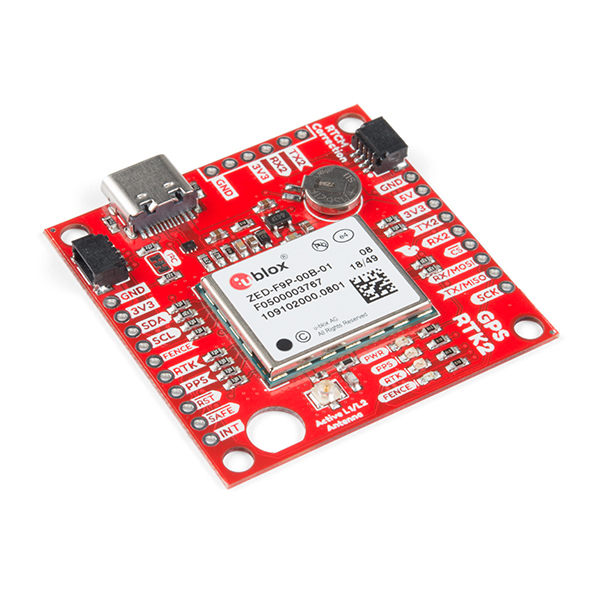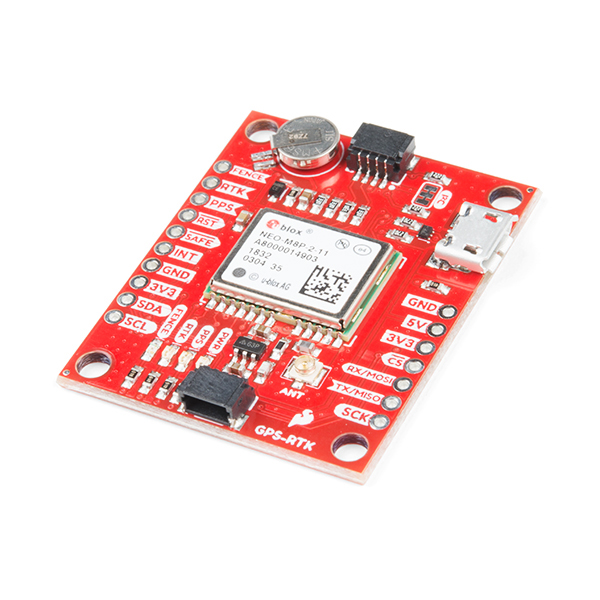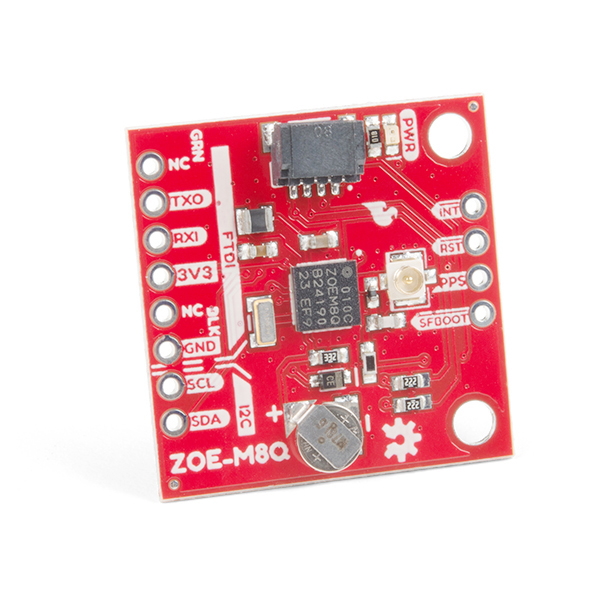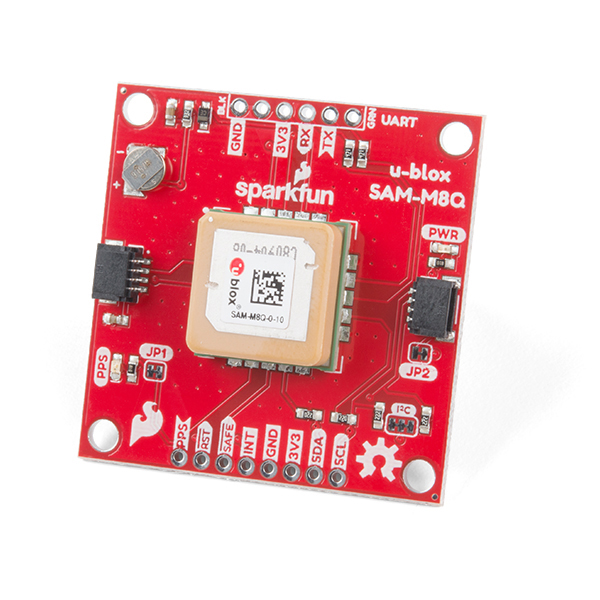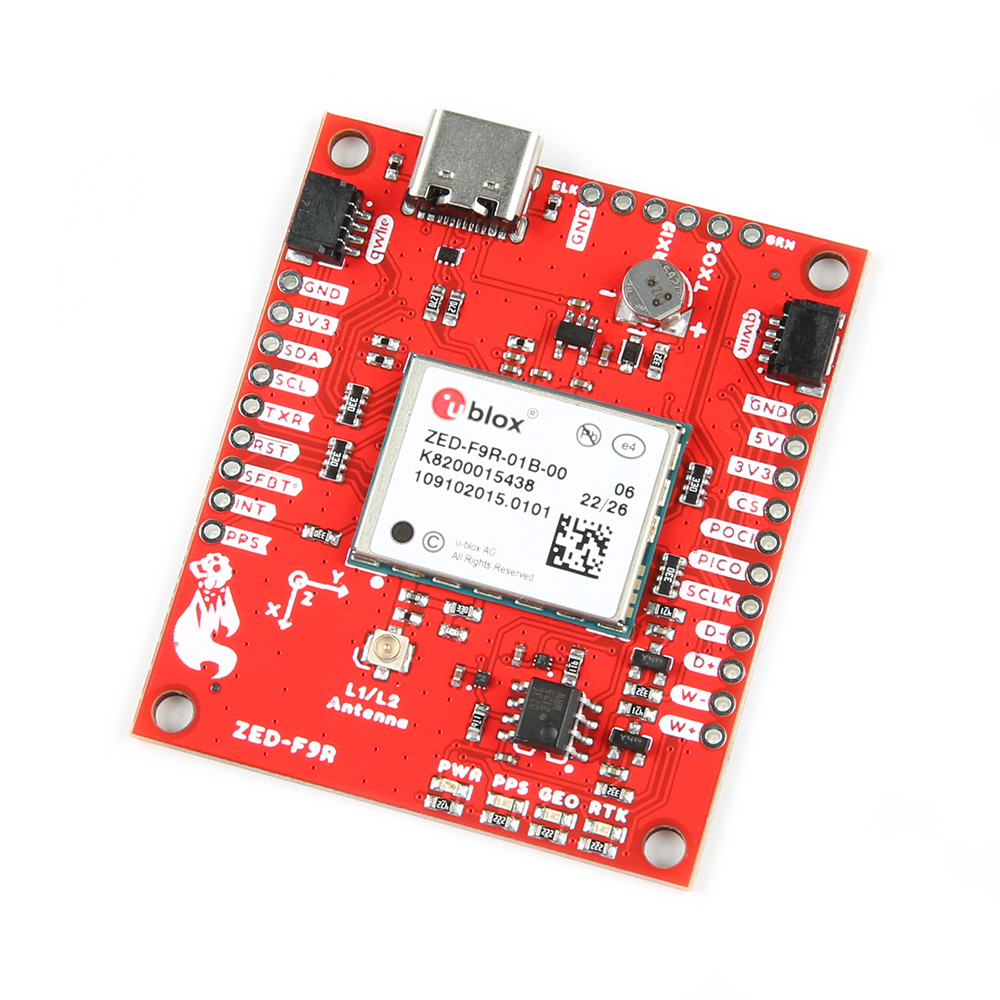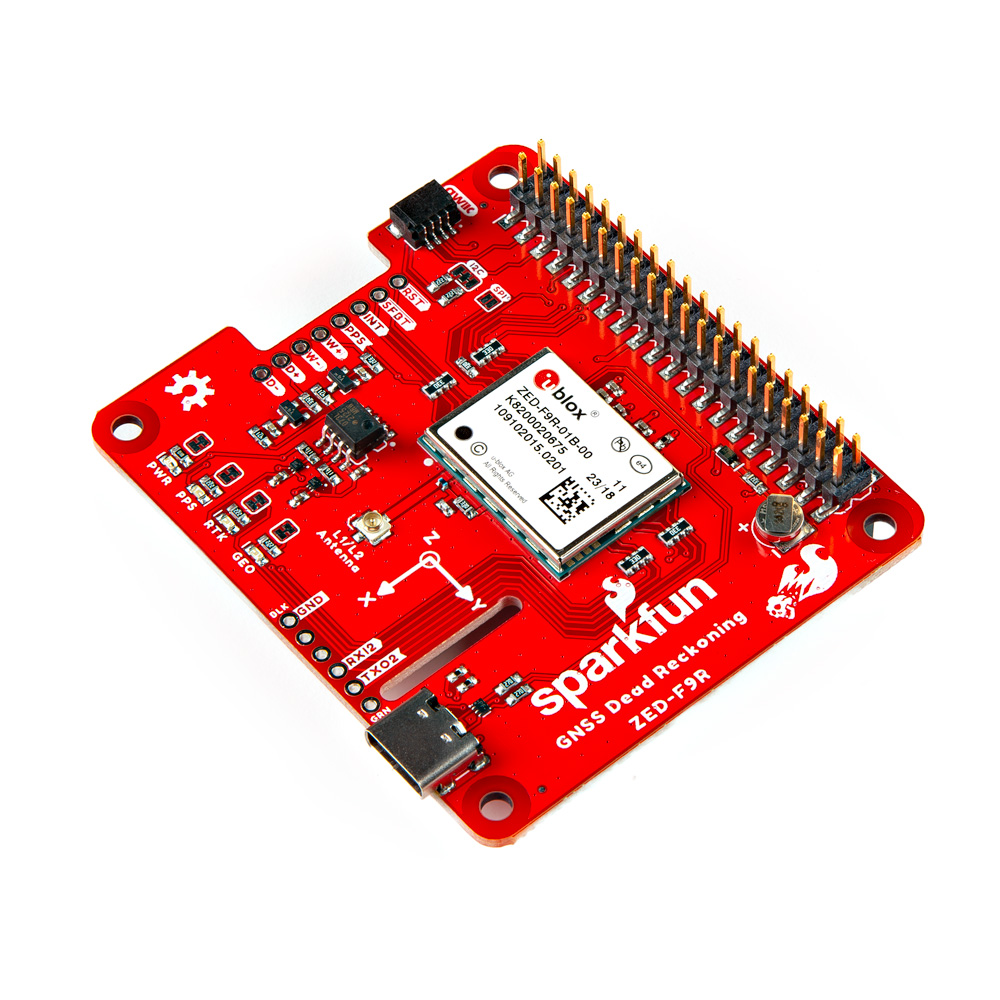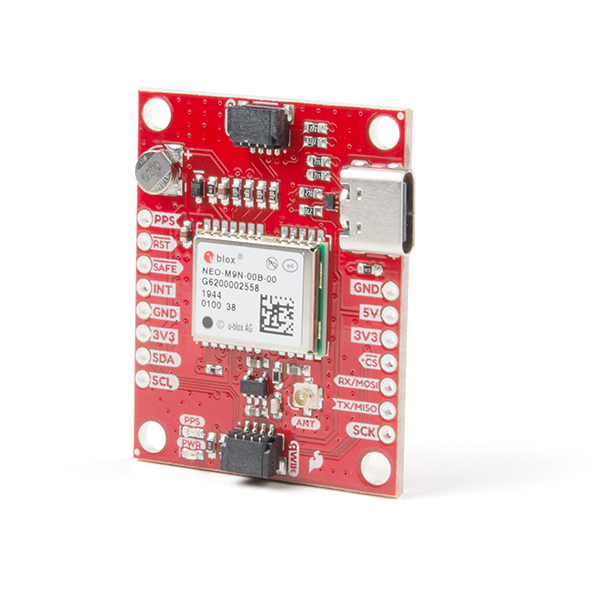This is a Python module for the SparkFun GPS products based on u-blox GPS modules.
This package is included in the overall SparkFun qwiic Python Package. While the module itself does not use I2C, it may none the less join the ranks when the Raspberry Pi has better support for clock stretching. None the less, a Qwiic connector has been included onboard so the GPS module can be used with our along side SparkFun's Qwiic products.
The u-blox gps Python package currently supports the following platforms:
The SparkFun u-blox gps module documentation is hosted at ReadTheDocs
This repository is hosted on PyPi as the sparkfun-ublox_gps package. On systems that support PyPi installation via pip, this library is installed using the following commands
For all users (note: the user must have sudo privileges):
sudo pip install sparkfun-ublox-gpsFor the current user:
sudo pip install sparkfun-ublox-gpsTo install, make sure the setuptools package is installed on the system.
Direct installation at the command line:
python setup.py installTo build a package for use with pip:
python setup.py sdistA package file is built and placed in a subdirectory called dist. This package file can be installed using pip.
cd dist
pip install sparkfun_ublox_gps-<version>.tar.gz
from ublox_gps import UbloxGps
import serial
# Can also use SPI here - import spidev
# I2C is not supported
port = serial.Serial('/dev/serial0', baudrate=38400, timeout=1)
gps = UbloxGps(port)
def run():
try:
print("Listenting for UBX Messages.")
while True:
try:
coords = gps.geo_coords()
print(coords.lon, coords.lat)
except (ValueError, IOError) as err:
print(err)
finally:
port.close()
if __name__ == '__main__':
run()- geo_coords_ex1.py
- Simple example showing how to get and print out latitude, longitude, and heading.
- gps_time_ex2.py
- Simple example showing how to UTC time and how to check its' validity.
- dead_reckoning_ex3.py
- Simple example showing how to use dead reckoning on dead reckoning modules. Make sure to take a look at our hookup guide for a detailed explanation on where to attach the module and how to calibrate it.
- stream_nmea_gps_ex4.py
- Simple example showing how to stream NMEA data from Ublox Modules.
- modifying_configuration_settings_ex5.py
- Simple example showing how change the configuration settings for the Ublox Module.
- using_spi_ex6.py
- Simple example showing how to use SPI. Module.
This code is dependent on the work by daylomople and the awesome parsing capabilities of ubxtranslator.
- Some bugs associated with SPI writes.
- Add more Classes and Messages to
sparkfun_predefines.pyso that a greater variety of messages can be parsed. - Fix bug when getting configuration settings.





